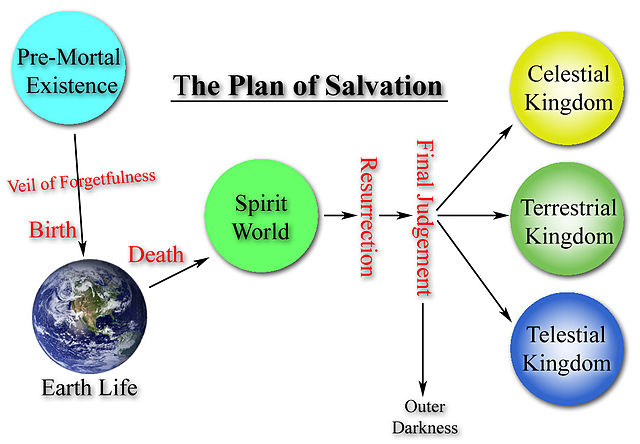Question
Am I understanding this correctly? If we do not attain the highest degree of glory our spouses will be taken from us and given to another? So if we make the celestial but not the highest degree we are still condemned to an eternity of being alone?
I ask because I have never developed a testimony of many key things (though I still obey them). Things like tithing. I pay and have for years but do not see why God wants my money and have never seen any benefits temporally for this. So I worry that even though I live by the rules I have doubts about church (not the Savior and the atonement). The way it sounds I will not make the highest degree and my wife and kids will be stripped of me. If this is the case what is the point of even trying?
Concerned
Answer
Concerned,
Our scriptures indicate that there are three degrees of glory. Within the highest degree of glory (Celestial) there are three levels a person, via their choices, may attain. The highest level within the Celestial Kingdom we have come to understand is “exaltation.” These are individuals “who are just men made perfect through Jesus the mediator of the new covenant.” These are they who will live with their spouses throughout the eternities; thus, your understanding is correct pertaining to the highest degree of glory.
As we further read and ponder other words of scripture we more fully recognize that our ability to be exalted is contingent upon our faith in (John 3:16) and our love (John 14:15) for our Savior. Through our faith (Alma 32:21) we begin to accept the Lord’s atonement. Through our love (obedience) we keep the commandments of God. Therefore, as an example, we exercise our faith in paying our tithing because we love our Savior, even if we may not have a testimony of tithing or we may not have received any monetary benefit (at least according to our minds eye) from paying tithing. The blessing of paying our tithing, or when we keep God’s commandments, is that we will always have his spirit to be with us (Doctrine and Covenants 20:77,79).
Our scriptures further indicate that doubt is proof, or bears witness, of God’s gift — our moral agency (Doctrine and Covenants 101:78). When we experience doubt, our heart and mind, is being enticed by opposites (2 Nephi 2:16). We then are given a choice, to either entertain our doubt or entertain our faith, or as Nephi declared we have the freedom to choose between liberty and eternal life, or to choose captivity and death (2 Nephi 2:27). In light of these scriptures the Lord is clear that whether or not we attain an exalted status the choice is clearly ours, and ours alone.
We receive the Holy Ghost
As church members, when we were baptized the gift of the Holy Ghost was confirmed upon us. We are counseled in scripture to “seek earnestly the best gifts” which are given for the “benefit of those who love [God] and keep his commandments” (Doctrine and Covenants 46:8-9). One of the gifts given by the spirit is to be able to believe on the words of those who know Jesus is the Christ by the power of the Holy Ghost (Doctrine and Covenants 46:13-14) “that they also might have eternal life if they continue faithful.” In other words, some people may not have a testimony themselves but have joined the Church, they also keep the commandments, because of the testimony and example of others they know. Thus, if a person believes in others (the prophets), and they keep the commandments of God while honoring their callings, their assignments, and are faithful to their families (particular their wives), is there any reason why a just and merciful God would deny them exaltation? NO!
Why keep trying? Because there is only one source who wants us to give up and it isn’t our Savior, which you profess to believe in, who is undeniably saying,
“Come unto me, all ye that labour and are heavy laden, and I will give you rest” (Matthew 11:28).
Gramps







